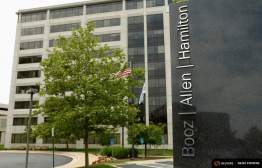The National Security Agency has been under constant fire since former contractor Edward Snowden leaked highly classified documents about the agency’s electronic eavesdropping programs, particularly the collection of telephone metadata belonging to millions of Americans. And while the media reaction to Snowden’s espionage has significantly hurt employee morale at the agency, it doesn’t seem to have affected the number of cybersecurity professionals and hackers interested in working for NSA.
The agency has received between 20,000 and 40,000 applications for only 2,000 job openings, said NSA director, Army Gen. Keith Alexander, speaking Oct. 8 at the Cyber7 event, sponsored by Politico. But that doesn’t mean such a pipeline will always be there for the government, acknowledged Alexander. The Snowden case has hurt internal morale and the public’s perception of the agency, he said.
“There’s a trust deficit,” Alexander said. And a large part of the reason for that has been the media’s preference to “sensationalize and inflame, instead of inform,” he said. The Snowden leaks, particularly those dealing with the telephone metadata collection program that has collected information on millions of calls made in the U.S. in an attempt to weed out potential foreign connections to domestic terrorist plots, has led many Americans to wonder just what else the agency might be doing, Alexander said. The answer, he said, is “just what you asked us to do. Defend this country.”
Alexander has embarked upon a public speaking tour in an effort to not only shed light on the agency’s surveillance efforts, which it argues are clearly legal programs that have sufficient checks and balances in place, including congressional oversight, but also to defend his agency’s honor and bolster morale.
“The most damage is to the morale of the workforce,” Alexander said, referring to sensationalized and inaccurate reports in the media. “We’re making it hard for [current employees] to stay with government,” Alexander said about the combination of furloughs and bad press. And more important, “how do you get good talent to come to the government when you treat [employees] like that?” Alexander asked.
But the current workforce challenge may not be limited to NSA and goes far beyond the government shutdown and domestic surveillance scandals, say former government IT experts. There may also be a significant generational and expectation gap between senior government leaders and the students they are trying to attract.
“This generation doesn’t necessarily want to move,” said Karen Evans, national director of the U.S. Cyber Challenge and former administrator for e-government and information technology at the Office of Management and the Budget, who spoke Oct. 10 at a cybersecurity event sponsored by the Association for Federal Information Resources Management.
“They kind of want to work out of their basements,” she said, referring to comments made by prospective job candidates who were interested in government work but simply did not want to leave their homes to do it. “The expectation [of these young people] is you guys come to us,” Evans said.
Of course, applicants can go directly to the federal website, USAjobs.gov, to find cybersecurity positions in government. But Tara Maller, a research fellow at the National Security Studies Program at New America Foundation, said the government may be turning away perfectly qualified candidates just by how it writes the job descriptions. Many of the positions list far too many highly specific qualifications, she said.
“You’re not going to be able to fill these jobs unless you broaden the skill set” required, Maller said.
Assuming the government can attract and hire the right talent, there remains the challenge of retention. And that also comes down to managing expectations, Evans said. First and foremost among those challenges is keeping them after they find out the government cybersecurity community is really nothing like how it is depicted in Hollywood movies or popular television shows.
“The challenge is that once they come into government, it’s not like ‘Criminal Minds,’ it’s not like [the show] ‘24,’ it’s not like ‘Homeland,’” Evans said.
Retired Air Force Gen. Charles Croom, vice president of cybersecurity solutions at Lockheed Martin, said one of the keys to attracting young people with the right cybersecurity skills into the government is to get them excited about the work they will be asked to do. “If you can get them excited about the mission, you’ve got them,” he said.
But there’s also a bit of ego massaging that must go on as well, Croom acknowledged. “You’ve got to recognize their talents in front of their peers. It’s not about money. It’s about the mission and personal recognition,” Croom said.
FedScoop asked Croom if this indicated that younger generations have lost a sense of service or if the government is simply making it too hard for hackers to enter federal service. He smiled and said, “There may be something to that.”




